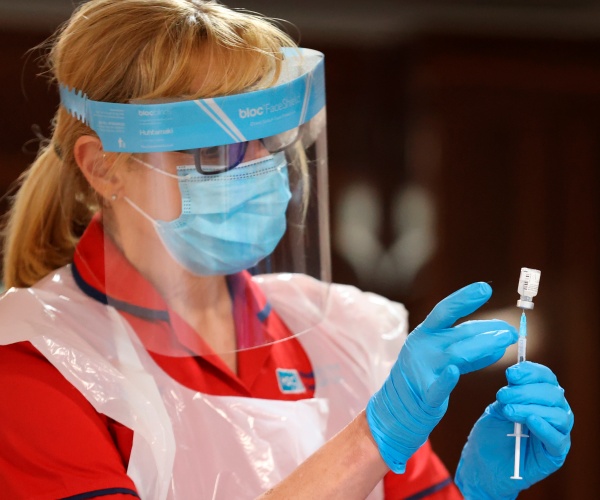We’ve got a vaccine — Here’s what to do, or not do, next

By Lynn Allison From Newsmax
The Pfizer/BioNTech vaccine has been approved by the Food and Drug Administration and is rolling out to all 50 states rightnow.
While this is good news for the general public, experts say it does not signal the end of the COVID-19 pandemic and there are several things we should continue to do until the crisis is under control.
It may be a while before the vaccine is available to the average citizen, so do not rush to your pharmacy or physician for inoculation. The Centers for Disease Control and Prevention’s Advisory Committee on Immunization Practices, or ACIP, has determined a plan to prioritize distribution, according to USA Today. ACIP has posted guidelines on its website on how it plans to conduct the process.
According to CNN, frontline healthcare workers and people in long-term residential facilities are at the top of the list. Dr. Anthony Fauci, director of the National Institute of Allergy and Infectious Diseases, said that it will likely take until spring of 2021 for non-priority groups to get vaccinated.
Don’t stop wearing masks. Dr. Sandro Cinti, an infectious disease expert at the University of Michigan, said that people who are vaccinated may still infect others. “You have to wear your mask,” he told CNN. The clinical trials of the vaccine candidates only tracked those individuals who developed COVID-19 symptoms, but since 40% of people are asymptomatic, you could still have the virus in your nose and infect others, said Cinti.
Don’t stop social distancing. “Stay at least 6 feet away from other people and avoid anyone who appears to have respiratory symptoms,” Dr. Gabe Mirkin, former assistant professor of medicine at the University of Maryland, tells Newsmax. “If you decide to travel, go by car if possible. I personally avoid group travel such as trains, planes, buses and ships.”
Experts told CNN that no vaccine is 100% effective and immunity is not immediate. Pfizer’s vaccine is 95% effective but requires two doses. According to the CDC, it takes one to two weeks after the second dose for a person to be fully vaccinated.
“Given the current limited information on how well the vaccine works in the general population, vaccinated persons should continue to protect themselves and others,” said the CDC’s Dr. Sarah Mbaeyi.
© 2020 NewsmaxHealth. All rights reserved.
For more on this story go to: NEWSMAX





